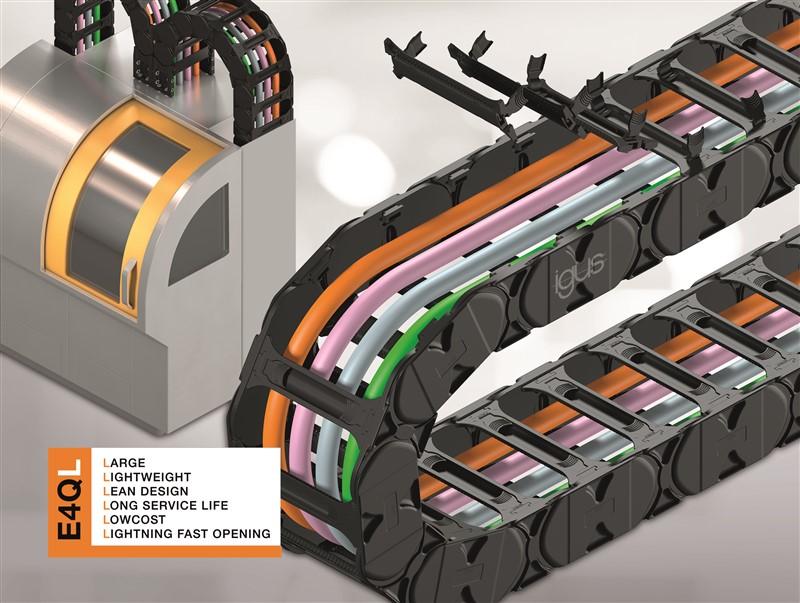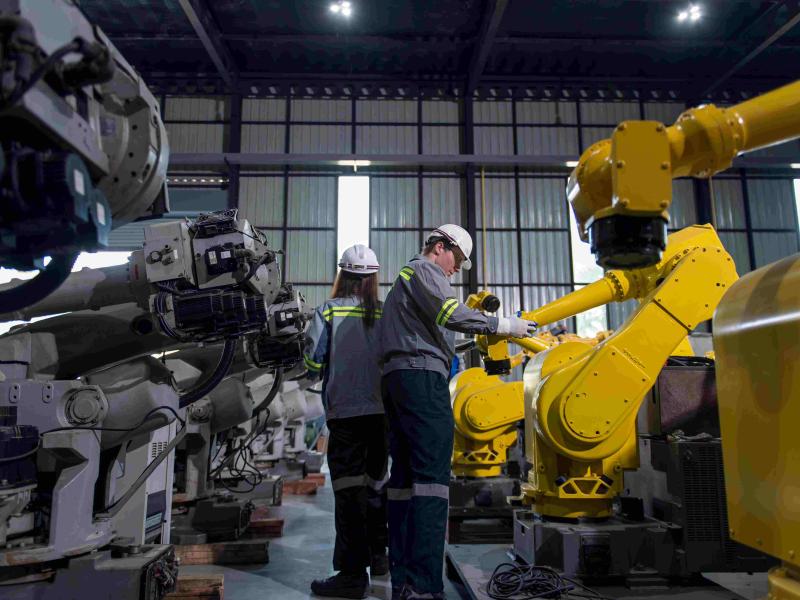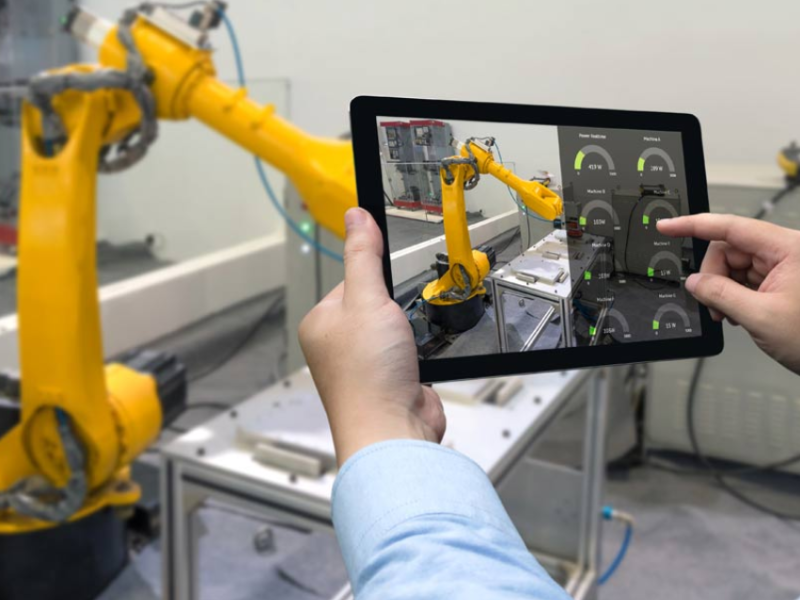The E4Q.64L's bionic design means that it costs up to 20% less than its big brother, the E4Q
New addition to the igus energy chain portfolio: the E4Q, a globally proven e-chain for applications with large unsupported lengths and high fill weight, now has a new variant: the "L". Users for whom the E4Q is too large can now save costs of up to 20% with the E4Q.64L. They will still benefit from the advantages of its big brother, such as quick, tool-free opening.
From the seventh robot axis in linear robot applications to machine tools, the igus E4Q-series energy chain has established itself in recent years in demanding applications with large unsupported lengths and high fill weights. There are two reasons for this. One is that the e-chain's wide side links and four stop-dogs per chain link make it very robust. The other is that assembly time is reduced by up to 40% because the crossbars can be opened in seconds - without tools and with just two fingers. The problem is that, in applications with medium loads (machine tools, woodworking, car washes etc.), the E4Q is oversized. "To offer users the advantages of the E4Q in these applications as well, and at a lower price, we developed the L version - the E4Q.64L," says Christian Ziegler, Head of e-chain Product Management at igus. "Depending on the width, the low-cost version of the energy chain costs between 15% and 20% less than the E4Q."
Bionic design ensures low weight, and three stop-dogs per chain link guarantee robustness
To reduce costs, the igus designers have modified the E4Q's design. The aim was to strike a balance between low dead weight and maximum robustness. The side links are narrower than those of the E4Q, reducing the weight. The bionic design, which dispenses with any material that has no load-bearing function, was retained. "The stop-dog system was completely rethought. Development goals were more strength and service life than the predecessors with two stop-dogs per chain link. The E4Q.64L is the first igus energy chain with three stop-dogs per chain link," says Ziegler. "This ensures an even more regular power flow and a longer service life."
Up to 20% more unsupported length
Tests in the igus test laboratory prove that the E4Q.64L has an approximately 30% greater breaking moment than the 14240 series, which is also used for unsupported applications. This results in up to 20% more length with the same fill weight. At 4kg/m, for example, the E4Q.64L manages 3.2 metres. The previous models (E4/light and E4.1) managed just 2.7 metres. Says Ziegler, "The E4Q.64L's outstanding strength enables us to serve many applications, such as car washes and airport passenger boarding bridges, more cost-effectively than ever before." The optimised ratio of internal to external dimensions ensures enough space for power and data cables. The E4Q.64L's inner height is 64mm. The chain can also be operated in two bending directions by replacing the outer link with a special RBR link. This gives it what is known as a reverse bend radius (RBR), which means that circular movements can be implemented (on a robot's axis 1, for instance).
As adaptable as a chameleon: widths between 100 and 500 millimetres available
With all design adjustments, igus has not changed the E4Q's crossbars in the low-cost version. This ensures two advantages for users. One is that the E4Q.64L can be opened just as easily and intuitively as its big brother. There are two indentations in the crossbars that allow the locking hooks to be opened with two fingers. Unlocked on both sides, the crossbar can be lifted out with little effort. The other advantage is that an extensive product range of crossbar widths is directly available, so that the E4Q.64L has been offered in 29 widths between 100 and 500 millimetres since the start of market launch. Treotham Automation is the Australian distributor for igus. For more information please contact your nearest Treotham office.
Contact:
Treotham Automation Pty Ltd
1300 65 75 64






